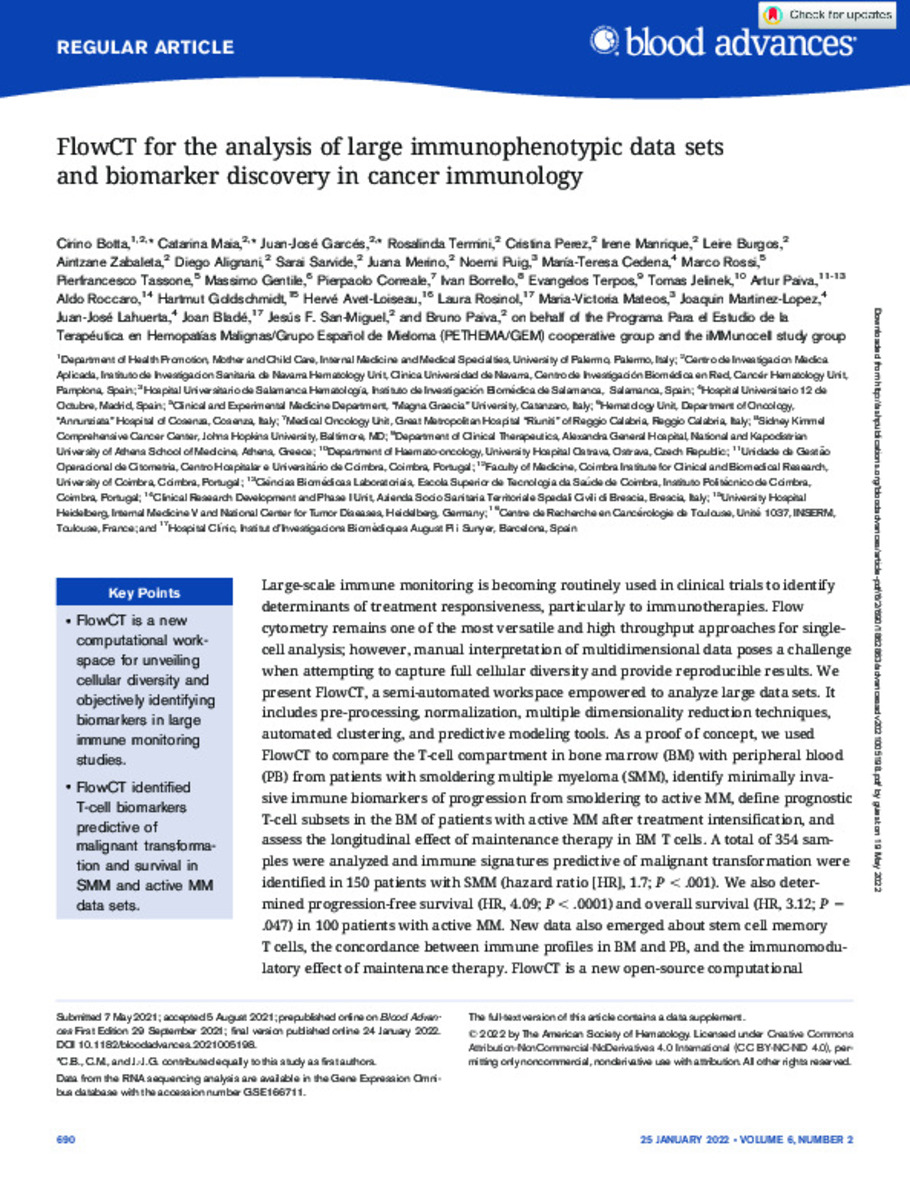FlowCT for the analysis of large immunophenotypic data sets and biomarker discovery in cancer immunology
Keywords:
Flow Cytometry
Myeloma
Publisher:
The American Society of Hematology
Note:
Licensed under Creative Commons Attribution-NonCommercial-NoDerivatives 4.0 International (CC BY-NC-ND 4.0)
Citation:
Botta, C. (Cirino); Maia, C. (Catarina); Garcés-Latre, J.J. (Juan José); et al. "FlowCT for the analysis of large immunophenotypic data sets and biomarker discovery in cancer immunology". Blood advances. 6 (2), 2022, 690 - 703
Statistics and impact
0 citas en

0 citas en

Items in Dadun are protected by copyright, with all rights reserved, unless otherwise indicated.










